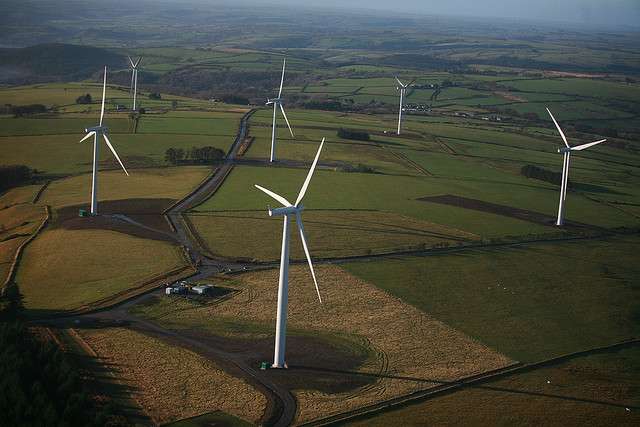Refugee Kids Throwing Snowballs With Cops Find Winter Fun (WATCH)
Cops and kids laugh their way through a fun-filled snowball fight at a refugee camp in Serbia.

Windmills and solar panels are helping to clean the air in Europe - and causing greenhouse gas emissions to plummet.
Renewable energy in place of dirty coal plants have slashed CO2 emissions by 8.8% each year from 2010 through 2012- the most recent year for which United Nations numbers are available. Solar and wind power accounted for almost two-thirds of the reduced emissions. Other renewable sources, such as biodiesel, accounted for 36% of the cuts.
Five nations - Germany, Sweden, France, Italy, and Spain - account for two-thirds of the reduced emissions. The 28 EU member countries combined spewed a billion fewer tons of CO2 per year in 2012, than they did in 1990.
CHECK Out: This Lamp Light Burns All Night Powered Only by a Glass of Saltwater
The success is encouraging governments in the EU to set even higher standards for themselves.
When European countries joined 37 other industrialized nations in signing the first-ever climate agreement-the Kyoto Protocol in 1997-they promised to produce 20% of their energy through wind and solar power by 2020. The EU has already reached 15%, and its ministers, now confident that they will exceed the original goal, have raised the bar to a 40% total by 2030.
Wind energy accounted for a third of all new generating capacity in Europe last year and is expected to produce as much as 17% of the EU's electricity by 2020. Solar power is expected to produce another 12% - eliminating the need for at least 5.6 million tons of oil per year.
Renewable energy in place of dirty coal plants have slashed CO2 emissions by 8.8% each year from 2010 through 2012- the most recent year for which United Nations numbers are available. Solar and wind power accounted for almost two-thirds of the reduced emissions. Other renewable sources, such as biodiesel, accounted for 36% of the cuts.
Five nations - Germany, Sweden, France, Italy, and Spain - account for two-thirds of the reduced emissions. The 28 EU member countries combined spewed a billion fewer tons of CO2 per year in 2012, than they did in 1990.
CHECK Out: This Lamp Light Burns All Night Powered Only by a Glass of Saltwater
The success is encouraging governments in the EU to set even higher standards for themselves.
When European countries joined 37 other industrialized nations in signing the first-ever climate agreement-the Kyoto Protocol in 1997-they promised to produce 20% of their energy through wind and solar power by 2020. The EU has already reached 15%, and its ministers, now confident that they will exceed the original goal, have raised the bar to a 40% total by 2030.
Wind energy accounted for a third of all new generating capacity in Europe last year and is expected to produce as much as 17% of the EU's electricity by 2020. Solar power is expected to produce another 12% - eliminating the need for at least 5.6 million tons of oil per year.
"This is a powerful demonstration that climate change agreements not only work, but can drive even higher ambition over time." said a statement from the United Nations Framework Convention on Climate Change, which released the latest figures.
(READ more at Climate News Network) - Photo: Statkraft, CC
Plug Your Friends Into This Story, Share It…
Be the first to comment